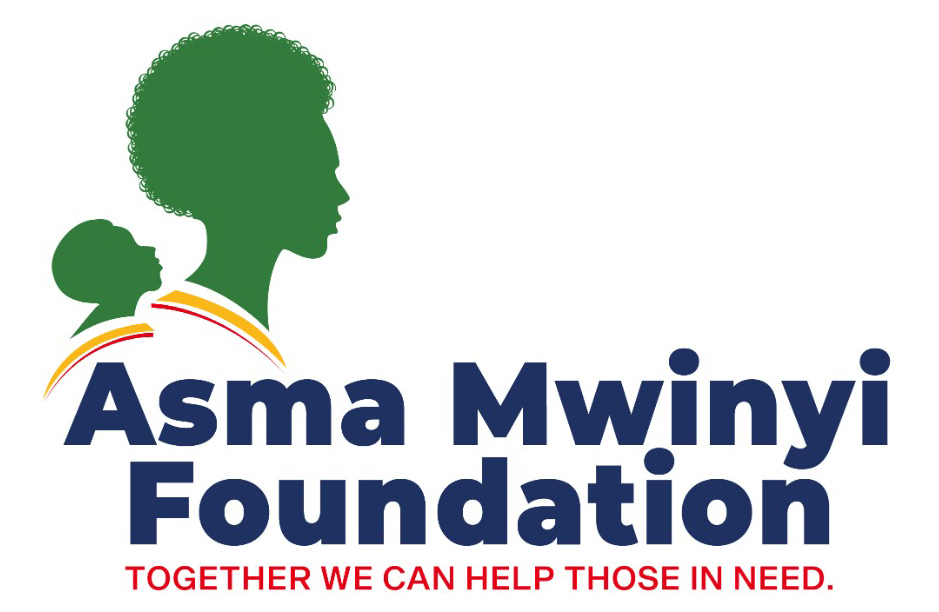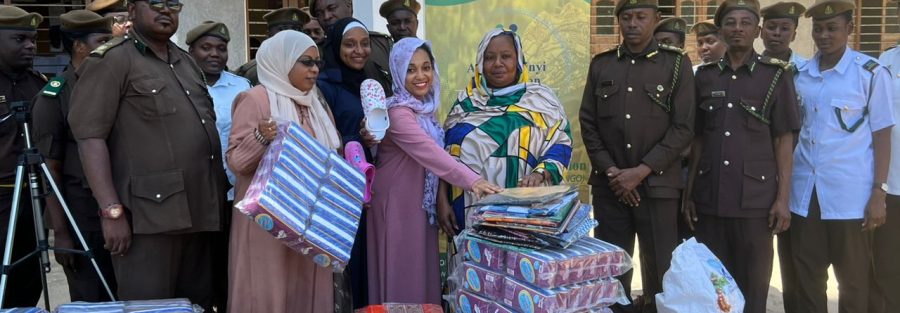In order to bring equality in society including health, an institution called Asma Ally Hassan Mwinyi Foundation, has designed a system to help women and children in the challenges they face in their daily lives.
Explaining in detail the institution in the sector, the Director of the institution, Asma Mwinyi, tells Nipashe that, now they are facing the needs in society, focusing on helping women and children with their challenges in their daily lives.
Asma says, the movement started in 2019 with the registration blessed by the Ministry of Health, starting to look after women and girls only, but now the institution includes all the people in need.
She also explains that, for the female child, they weave them by giving them sexual, legal and cognitive education at school. In addition to providing such education, they also focus on helping the community for those with special needs in Tanzania Mainland and Islands.
She explained the activities they do; they are concentrated in five major areas; The Mother’s Bag Program which was launched on March 8, this year, International Women’s Day, which has already saved 600 people on the mainland and islands.
It is a bag containing essential medical equipments for women, when she goes to the ward to give birth, distributed to a women who are ready for labor, but unfortunately does not have such equipments because of the poor economy.
Asma says, her institution has been going to hospitals and homes, using local, village, neighbourhood government chairmen, nurses and midwives to find the needy, as they are the locals who know the environment and their needs.
“Sometimes we go directly to the relevant hospitals for women who arrive to give birth and do not have any equipment in hand, we are forced to send the service to save the life of the mother and child,” she says.
Also, in what they call the “Towel Distribution Program for Girls in School and Women in Prisons (prisoners),” it is conducted by focusing more on students in need, especially outside the cities and prisoners in prisons, a total of 6000 beneficiaries have already been reached.
Thirdly, the area of well drilling is mentioned, which includes drilling wells in schools, houses of worship, markets, villages, a plan that goes hand in hand with providing toilets in those areas.
She explains that so far they have already saved the lives of about 7,777 students in two schools located in Unguja, Mchangani Coast area who were facing the challenge of lack of water, also toilets vents helping themselves in the wild.
There Asma mentions that they have found six outlets, including providing outlets to six mosques that also had no toilet service.
Fourth, she alludes to the role she calls ‘comforting the sick at home and in the hospital’. She mentions this as a program aimed at all patients who are hospitalized and in poor conditions at home, who do not have money to treat themselves due to poor financial ability or have been abandoned by their relatives.
Asma tells Nipashe that, the program is sustainable, it has been there for patients with special needs, they have been passing by to see the relevant leadership of the hospital and give guidance to patients in need, so they comfort them with money for treatment and sustenance, also food while they are in the hospital.
She also explained how the program affects the distribution of clothes and food to the needy at home and those in extreme poverty, including the distribution of shoes to primary school students, the needy in a bad situation.
She mentioned that the type of support to include the distribution of the needs to cover the dying person either at home or in the hospital, as there has been a wave of such needs in those areas, comrades or the community unable to buy the clothes, due to challenges and the lack of funds needed.
“We are doing this, because clothes are very important, every human being should wear them when they are kept in their eternal home. We use the members of the tribes, villages, or the neighbourhood to find those who have that challenge,” says Asma.
The fifth area of their role in the future of gender, called the ‘GBV-Gender Equality Program’ was launched last year, focusing mainly on opposing sexual corruption of school girls and other women in sexual corruption.
It is a program that aims to educate girls, regarding corruption, teaching them to face it, even to avoid corruption, giving female students a way to avoid it, so that their lives and dreams are not ruined.
Asma explained, it is a form of corruption that can make a girl child at school miss the opportunity to continue her studies or catch infectious diseases from teachers or others in the community around them.
“We all know that sexual corruption is not acceptable in society, so we have a special responsibility to educate girls in schools, colleges and elsewhere that this is not acceptable,” says Asma.
She mentioned in the concept of educating the community, that they have not left the boys behind, they are taking steps to educate them about theories about menstruation, giving them guidance on how to support their sisters, after the culture of making fun of them at school.
Also, she mentioned that her institution bears the responsibility of touching those who are not sick and in need of other services such as maternity, providing capital to the helpless, the poor and enabling them to get small capital, to earn money to support their families.
That includes providing technical education to daughters who fail to continue their studies due to lack of fees or other reasons.
Already at least 19 girls in Zanzibar and the mainland have been given different educations in tailoring and they have been given the machines, so that they can get rid of themselves economically.
There Asma calls on people with the ability to help the community around them, with a concluding word: ‘Each of us has a responsibility to help the community…’
The director of the Asma Mwinyi Foundation (center), Asma Allt Mwinyi, distributing female towels at the Zanzibar Central Prison. Also, she mentioned that her institution carries the responsibility of touching those who are not sick and in need of other services such as maternity, providing capital to the helpless, those with conditions poor and enable them to get small capital, get money to support their families.
That includes providing technical education to daughters who fail to continue their studies due to lack of fees or other reasons.
Already at least 19 girls in Zanzibar and the mainland have been given different educations in tailoring and they have been given the machines, so that they can get rid of themselves economically.
There Asma calls on people with the ability to help the community around them, with a concluding word: ‘Each of us has a responsibility to help the community…’
Director of the Asma Mwinyi Foundation (centre), Asma Allt Mwinyi, distributing female towels at the Zanzibar Central Prison

